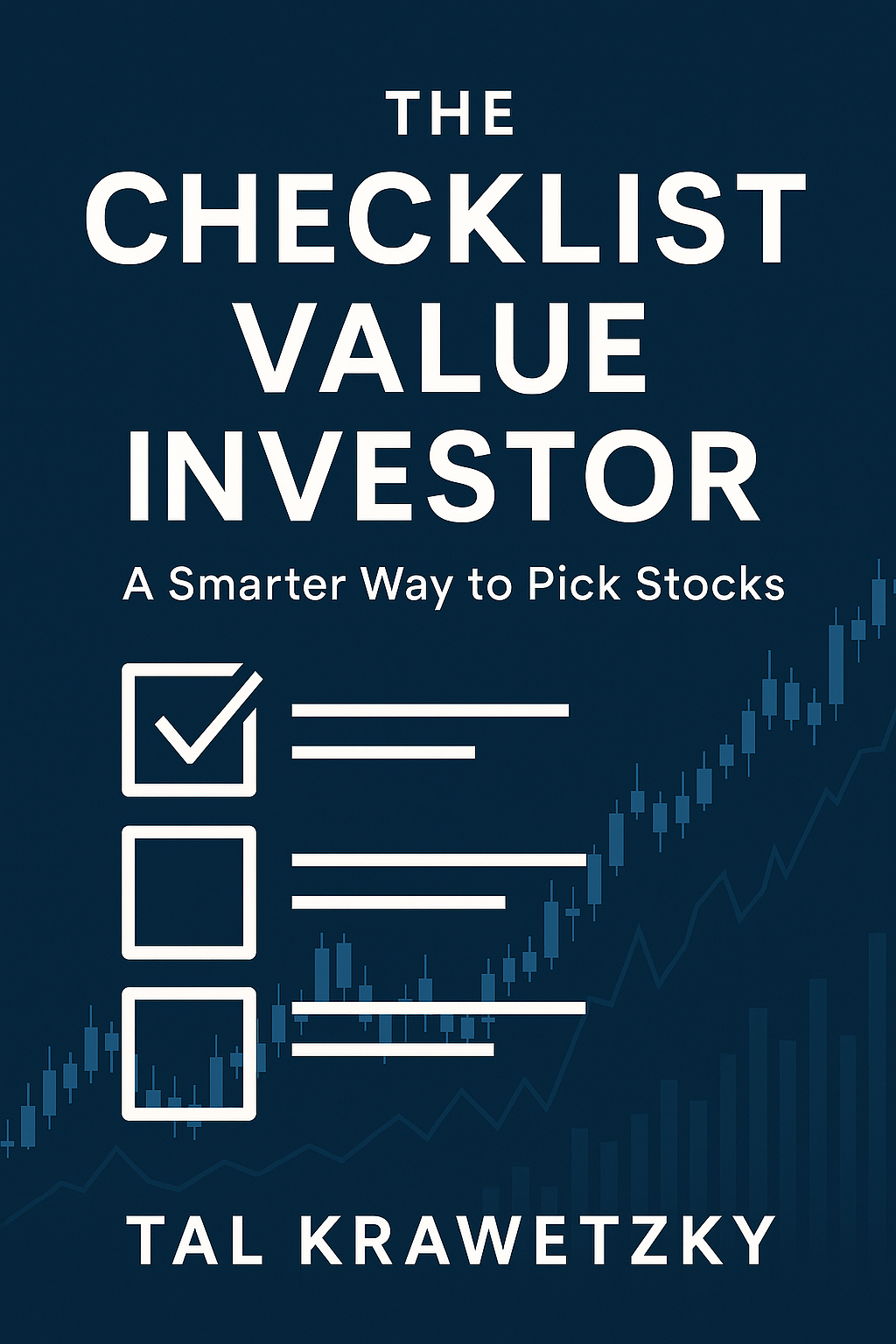← Home


Clarkson PLC
-8.04%
Logistics / Shipping services and maritime investments
At a Glance Core Facts Company Q&A Industry Q&A Competitors Stock Swings News Income Statement Balance Sheet Cash Flow Statement Financial Growth Enterprise Ratios Metrics Dividends Risks SWOT Porter's Five Forces PEST Score Positive Clusters Due Diligence Insider Trades SEC Filings Stock Split History Press Releases Earnings Calendar Revenue Segmentation Owner Earnings Reports Web
Get your free eBook: The Checklist Value Investor — A Smarter Way to Pick Stocks.
📘 Inside, you’ll discover:
- How to spot high-quality businesses
- The mindset that beats the market
- Checklists used by professionals
- Case studies of both wins and mistakes
- Avoid common investing traps
- Decide with logic, not emotion
Sign up for free
and download the eBook instantly!
Already have an account?
Log in here.
Industry Financials
Industry Risks
Industry Competition
Management in the Industry
Nature of the Industry
Customers in the Industry
Industry Regulations
Industry Future
Industry Financials
How to evaluate financials of a company in the Shipping services and maritime investments industry?
1. Review the company's financial statements: The first step in evaluating a company's financials is to review its financial statements, including the balance sheet, income statement, and cash flow statement. These will provide a detailed breakdown of the company's assets, liabilities, revenue, expenses, and cash flow.
2. Analyze revenue and profit growth: Look at the company's revenue and profit growth over the past few years. A healthy and consistent growth trend is a positive sign and indicates that the company is effectively managing its operations.
3. Examine the company's debt and leverage: Look at the company's debt levels and its ability to service its debt. A high amount of debt and leverage can make a company vulnerable to financial downturns or economic uncertainties.
4. Assess the company's cash flow: Cash flow is an essential metric for assessing the financial health of a company. Positive cash flow indicates that the company is generating enough cash to meet its financial obligations and invest in growth opportunities.
5. Investigate the company's profitability ratios: Profitability ratios, such as return on equity (ROE), return on assets (ROA), and gross profit margin, can provide insight into how efficiently and effectively the company is generating profits.
6. Look at the company's operating efficiency: Operating efficiency measures how well a company manages its expenses and assets to generate profits. The operating margin ratio and asset turnover ratio are useful metrics to evaluate a company's operating efficiency.
7. Assess the company's liquidity: Liquidity ratios, such as the current ratio and quick ratio, indicate a company's ability to cover its short-term liabilities with its current assets.
8. Research industry trends: Understanding the current trends and dynamics in the shipping services and maritime investments industry can help you evaluate a company's financials in the context of its industry peers.
9. Consider the company's growth prospects: Look at the company's strategies for future growth and expansion. Evaluate its potential for increased revenue and profitability in the future based on market trends and its competitive position.
10. Examine the management team: The competence of the company's management team can significantly impact its financial performance. Look into the qualifications, experience, and track record of the company's leadership to assess their ability to successfully manage the company's financials.
2. Analyze revenue and profit growth: Look at the company's revenue and profit growth over the past few years. A healthy and consistent growth trend is a positive sign and indicates that the company is effectively managing its operations.
3. Examine the company's debt and leverage: Look at the company's debt levels and its ability to service its debt. A high amount of debt and leverage can make a company vulnerable to financial downturns or economic uncertainties.
4. Assess the company's cash flow: Cash flow is an essential metric for assessing the financial health of a company. Positive cash flow indicates that the company is generating enough cash to meet its financial obligations and invest in growth opportunities.
5. Investigate the company's profitability ratios: Profitability ratios, such as return on equity (ROE), return on assets (ROA), and gross profit margin, can provide insight into how efficiently and effectively the company is generating profits.
6. Look at the company's operating efficiency: Operating efficiency measures how well a company manages its expenses and assets to generate profits. The operating margin ratio and asset turnover ratio are useful metrics to evaluate a company's operating efficiency.
7. Assess the company's liquidity: Liquidity ratios, such as the current ratio and quick ratio, indicate a company's ability to cover its short-term liabilities with its current assets.
8. Research industry trends: Understanding the current trends and dynamics in the shipping services and maritime investments industry can help you evaluate a company's financials in the context of its industry peers.
9. Consider the company's growth prospects: Look at the company's strategies for future growth and expansion. Evaluate its potential for increased revenue and profitability in the future based on market trends and its competitive position.
10. Examine the management team: The competence of the company's management team can significantly impact its financial performance. Look into the qualifications, experience, and track record of the company's leadership to assess their ability to successfully manage the company's financials.
What are the cost structures and profit margins in the Shipping services and maritime investments industry?
Cost structures and profit margins in the shipping services and maritime investments industry can vary greatly depending on the type of services offered and the current market conditions. However, there are some common cost structures and profit margins that can be observed in this industry:
1. Operating Costs: These include expenses related to maintaining and operating ships, such as fuel, crew salaries, insurance, maintenance, and repairs. These costs can vary depending on the size and type of vessel, as well as the distance and duration of each trip.
2. Capital Costs: These include the initial investment in purchasing or leasing ships, as well as the ongoing financing costs such as loan interest and lease payments.
3. Administrative Expenses: These include costs related to managing the business, such as office rent, salaries of administrative staff, and other overhead costs.
4. Port Charges: Shipping companies need to pay port charges for using port facilities and services, such as dock fees, pilotage, tugboat services, and other fees. These charges can vary depending on the port location and the services utilized.
5. Regulatory Costs: The shipping industry is subject to various regulations and compliance requirements, which can include costs for permits, certifications, and inspections.
Profit margins in the shipping services and maritime investments industry are heavily influenced by market conditions, including global trade volumes, freight rates, and fuel prices. In general, profit margins in this industry can range from 5% to 15%, depending on the efficiency of operations, demand for services, and competitive landscape.
Investing in new ships or expanding operations can increase operating and capital costs, but may also result in higher profits in the long run. On the other hand, economic downturns or oversupply in the market can result in lower freight rates and decreased profit margins for shipping companies. Overall, the shipping services and maritime investments industry can be very volatile and subject to various external factors that can impact both costs and profits.
1. Operating Costs: These include expenses related to maintaining and operating ships, such as fuel, crew salaries, insurance, maintenance, and repairs. These costs can vary depending on the size and type of vessel, as well as the distance and duration of each trip.
2. Capital Costs: These include the initial investment in purchasing or leasing ships, as well as the ongoing financing costs such as loan interest and lease payments.
3. Administrative Expenses: These include costs related to managing the business, such as office rent, salaries of administrative staff, and other overhead costs.
4. Port Charges: Shipping companies need to pay port charges for using port facilities and services, such as dock fees, pilotage, tugboat services, and other fees. These charges can vary depending on the port location and the services utilized.
5. Regulatory Costs: The shipping industry is subject to various regulations and compliance requirements, which can include costs for permits, certifications, and inspections.
Profit margins in the shipping services and maritime investments industry are heavily influenced by market conditions, including global trade volumes, freight rates, and fuel prices. In general, profit margins in this industry can range from 5% to 15%, depending on the efficiency of operations, demand for services, and competitive landscape.
Investing in new ships or expanding operations can increase operating and capital costs, but may also result in higher profits in the long run. On the other hand, economic downturns or oversupply in the market can result in lower freight rates and decreased profit margins for shipping companies. Overall, the shipping services and maritime investments industry can be very volatile and subject to various external factors that can impact both costs and profits.
What Our Users Say
© 2024 - 2025 InsightfulValue.com. All rights reserved.
Legal